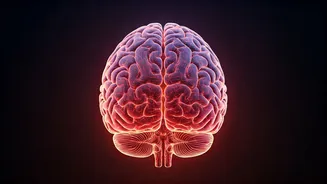Mind-Sharpening Strategies
The realm of brain health extends far beyond the typical focus on physical workouts such as cardio. Engaging in specific exercises designed to stimulate
cognitive functions offers an exceptional pathway to maintain and even improve brain health. These exercises offer potential benefits in slowing down cognitive decline, offering a proactive approach to maintaining a sharp mind. It is about understanding that maintaining brain health needs deliberate effort, and consistent participation in the right activities plays a crucial role. This proactive approach includes adopting lifestyle habits and exercises that can foster mental agility and resilience, rather than relying solely on routines focused on the physical body. Embracing these activities is more than just a momentary strategy. It is about integrating these techniques into everyday life. This ongoing process of mental stimulation and active engagement provides many benefits. It helps to keep your mind sharp and active for years to come. Ultimately, these strategies focus on empowering individuals. The objective is to make them proactive in their cognitive well-being. This is achieved by providing accessible and impactful methods to strengthen brain functions.
Cognitive Exercise Defined
When we discuss exercises for the brain, it's crucial to understand what distinguishes them from physical activities. Cognitive exercises are specifically crafted to stimulate mental processes. They enhance memory, focus, problem-solving skills, and overall cognitive function. Unlike physical exercises, which target muscles and cardiovascular systems, cognitive exercises focus on strengthening the brain's neural pathways. These pathways enable faster thinking and more efficient information processing. They are designed to challenge the brain in new and engaging ways, encouraging it to form new connections. They also help reinforce existing ones. This kind of stimulation is vital for maintaining and improving cognitive abilities, particularly as one ages. The goal is to keep the brain flexible and resilient. Regular participation in these exercises contributes to overall brain health, sharpening memory, and enhancing critical thinking. By dedicating time to cognitive exercises, individuals can enjoy improvements in cognitive performance. This approach provides a practical path to sustaining and improving the brain's health.
Brain-Boosting Activities
Exploring activities that benefit your brain provides a gateway to enhancing cognitive abilities. Activities such as puzzles, which range from crosswords to Sudoku, are powerful tools for enhancing mental agility. These exercises stimulate critical thinking, memory, and problem-solving. This makes them highly effective for keeping the mind active and engaged. Learning a new skill is another excellent approach. Whether it's a new language, a musical instrument, or coding, the brain is constantly challenged to form new neural connections. These activities help improve cognitive flexibility and adaptability, vital for long-term brain health. Engaging in creative endeavors such as writing, painting, or other art forms is beneficial, too. These creative outlets encourage the brain to think in different ways, stimulating imagination and innovative thought. Making these activities part of your routine contributes to overall brain health. Consistent engagement in these mentally stimulating tasks helps keep your brain in peak condition, sharpening cognitive functions and improving mental resilience.
Lifestyle Adjustments
Alongside targeted cognitive exercises, certain lifestyle adjustments greatly affect brain health. Prioritizing quality sleep is crucial. During sleep, the brain consolidates memories and clears out toxins, making restful sleep vital for cognitive function. A diet rich in brain-healthy foods is another essential element. Including foods packed with antioxidants, such as berries and green leafy vegetables, is very helpful. These foods provide critical nutrients and protect the brain from damage. Regular physical exercise is equally important for brain health. Exercise increases blood flow to the brain and helps to grow new brain cells. It also boosts mood and reduces stress, factors that positively impact cognitive function. Minimizing stress is critical. Techniques like meditation or yoga offer effective ways to reduce stress. A reduction in stress supports better cognitive performance. These lifestyle changes work in concert with cognitive exercises to optimize brain function, leading to a comprehensive approach to mental well-being.
Consistency is Key
The journey to a sharper brain requires consistency and dedication. Just as physical fitness depends on regular exercise, cognitive health benefits from persistent mental stimulation. Setting realistic goals and incorporating brain exercises into your daily routine is essential. Even short sessions of mental activity can make a significant difference over time. Consistency helps strengthen the neural connections and enhance overall cognitive functions. It's about developing habits. This involves making mental exercises a natural part of daily life, similar to brushing your teeth. Regularity is the foundation of cognitive well-being. By integrating these practices into your daily life, you are more likely to see and maintain progress. Sticking to a consistent approach transforms the process from a challenge to a sustainable and rewarding activity. This commitment is crucial for realizing the long-term benefits of a sharper mind and a healthier brain.













